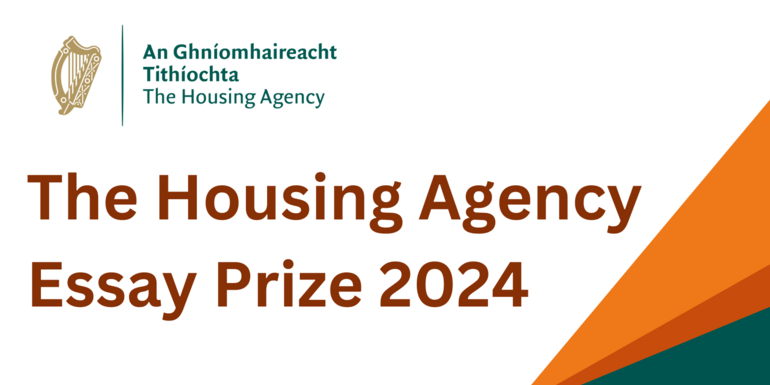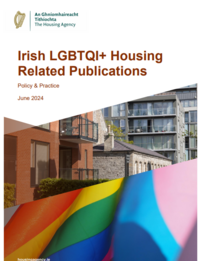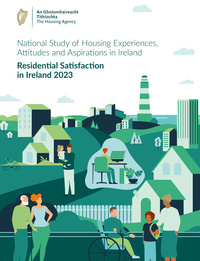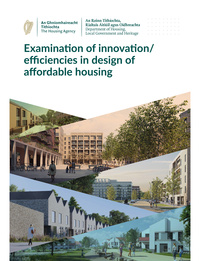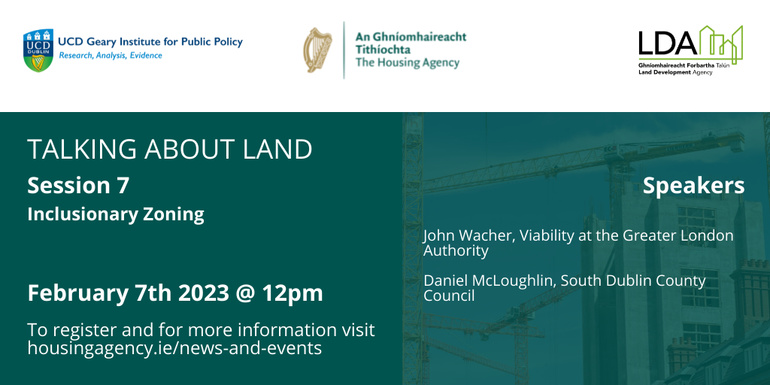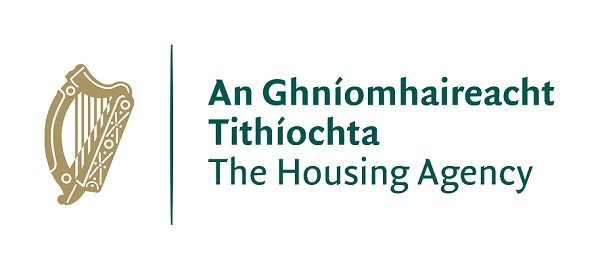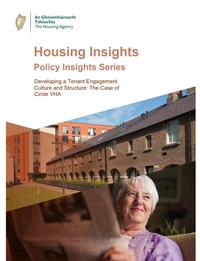
PRESS RELEASE
Tuesday, 18th July 2023
- Increased Cost Rental Eligibility Thresholds from 1 August 2023
- Changes to Cost Rental Equity Loan (CREL) ensuring AHBs can continue to deliver at scale
The Minister for Housing, Local Government and Heritage, Darragh O’Brien TD and the Chief Executive of The Housing Agency, Bob Jordan, today launched the new Secure Tenancy Affordable Rental (STAR) investment scheme. The Scheme aims to invest up to €750m in the delivery of over 4,000 Cost Rental homes, which will benefit from secure tenancies under Cost Rental housing legislation and will be let at a minimum of 25% below comparable market rental levels in high demand urban areas.
The Scheme, which was signaled by the government in April as a Cost Rental viability measure, will assist in addressing viability challenges for developments by providing equity investment to stimulate the creation of Cost Rental accommodation. Private providers and Approved Housing Bodies (AHBs) can apply to provide Cost Rental homes under the Scheme and the State will make an equity investment available in return for designation of the homes as Cost Rental homes for 50 years.
By increasing the supply of Cost Rental homes, the Scheme will benefit households who are disadvantaged by prevailing market rents, through providing an option of a home for rent at a more affordable level with security of tenure. The Scheme will also support the government’s objectives of compact growth and creating vibrant liveable cities for people who want to live close to work and urban amenities.
The STAR investment scheme will be managed by The Housing Agency on behalf of the Department of Housing, Local Government and Heritage. The Housing Agency will be accepting Expressions of Interest from proposers for eligible schemes from 1st August 2023. The Scheme is open to all providers including consortiums, Approved Housing Bodies etc. subject to the eligibility criteria outlined in the Scheme itself.
Commenting on the publication of details of the new Scheme, Minister O’Brien said:
“This new Secure Tenancy Affordable Rental investment scheme will increase the supply of safe and affordable Cost Rental homes at a scale which is crucial to make the rental market work for everybody. The Government is making record investment in housing and we are using every tool at our disposal to activate sites and to boost the construction of new homes at scale. This new scheme provides another avenue for our partners in Approved Housing Bodies, the LDA and our partners in the private sector to help us achieve our ambitious plans as set out under Housing for All.”
The Housing Agency’s CEO, Bob Jordan said:
“The introduction of the Secure Tenancy Affordable Rental investment scheme is an important measure that will expand availability of the Cost Rental model and increase the supply of affordable and secure rental homes in high demand areas across Ireland. The Housing Agency looks forward to supporting the implementation of this Scheme. The first step will be inviting expressions of interest for eligible developments from the 1st August 2023.”
In tandem with the launch of the new Scheme, the government is announcing increased income thresholds for Cost Rental homes, with net household income limits for eligibility of €66,000 in Dublin and €59,000 elsewhere. These will be introduced across the Cost Rental sector from the 1st August 2023, replacing the former national net income limit of €53,000. The increased thresholds recognise that prevailing rents in the private market have increased significantly in recent years and a large cohort of private renters are experiencing severe affordability challenges, particularly in Dublin. The new thresholds will apply to all Cost Rental homes provided under the Affordable Housing Act 2021.
The government has also agreed significant changes to the Cost Rental Equity Loan (CREL) on foot of a recommendation from the Working Group on the Cost Rental Equity Loan. The CREL is available to Approved Housing Bodies which provide Cost Rental homes. The improved loan will see availability of increased levels of loan finance, together with new State equity investment which will improve the ability of Approved Housing Bodies to bring forward Cost Rental homes.
The suite of measures, including the changes to income eligibility, the new STAR investment scheme and the changes to the Cost Rental Equity Loan will work together to ensure that all the avenues for Cost Rental delivery are exploited to achieve the levels of supply needed under Housing for All.
ENDS
Contact:
Communications Manager at communications@housingagency.ie or STARIS@housingagency.ie
Further information
Cost Rental Eligibility
The net household income limit of €53,000 for Cost Rental was set in December 2021, at the time of the first delivery of Cost Rental homes. The real value of this has been eroded by significant inflation since then as capital costs, interest rates and prevailing rents in the private market have all increased. In response new income limits have been agreed which will apply across the Cost Rental sector to all delivery streams – by AHBs, Local Authorities, the LDA, and any Cost Rental landlord. The national net income limit will be raised to €59,000, while a specific Dublin limit will be set at €66,000, to have effect from 1st August 2023.
The Secure Tenancy Affordable Rental (STAR) investment scheme
The Secure Tenancy Affordable Rental (STAR) investment scheme is intended to activate the delivery of Cost Rental homes to let at a minimum of 25% below comparable market rental levels.
The Scheme will be operated and managed on behalf of the Department by The Housing Agency. The Scheme is time limited and subject to a strict sunset clause. All units in receipt of investment will be completed by no later than two years after the commencement date or by the 31st December 2027, whichever is the shorter.
Funding of €0.75 billion will be made available under the Scheme with the expected delivery of over 4,000 homes.
Key Features of the STAR Investment Scheme
Open to all market operators: The Scheme is designed to be open to all market operators. The main criteria is that in exchange for the investment, operators must bring forward suitable proposals that:
- make available 10 plus residential units for Cost Rental tenure at rent levels of at least 25% below market levels. The proposals must deliver new units which have never been previously rented
- formally designate all units funded as Cost Rental dwellings for a period of 50 years.
It will be permissible for consortiums to apply, e.g., a developer may apply by agreement with the intended holder of the Cost Rental homes but the consortium must be led by the long-term owner, operator and manager of the units.
Level of Investment available: In recognition of the pronounced viability challenges in specific areas of Dublin, it is proposed that two rates of investment will apply under STAR, with a maximum investment of €175,000 in Dublin and €150,000 in the rest of the State. In order to incentivise green development, an additional investment of €25,000 will also be made available subject to meeting sustainable development criteria as set out in Section 7.13 of the scheme.
|
Area
|
Maximum STAR Investment per unit
|
Maximum STAR Sustainability Investment per
|
Maximum Total STAR
Investment Available per unit
|
|
Dublin
|
175,000
|
25,000
|
200,000
|
|
Rest of State
|
150,000
|
25,000
|
175,000
|
At the end of the term of the Agreement (50 years) there will be three options for operators:
- Extend the agreement for an agreed period (with the dwellings remaining in Cost Rental usage)
- Make a repayment to the State, together with an uplift if the asset has increased in value, and exit Cost Rental designation
- The State may exercise an option to purchase the dwellings from the owner for market value, taking account of the State’s investment in the properties
Changes to the Cost Rental Equity Loan
Overall State funding to increase from 45% up to 55% of capital costs, on a sliding scale as necessary for viability at appropriate rent levels.
CREL loans (on existing favourable terms) to be joined with new State equity investment element (up to a maximum of 20% equity).
‘Accelerated CREL’ pre-completion drawdowns to be extended to support AHBs in forward funding turn-key acquisition projects, in order to secure more competitive acquisition or development costs.
